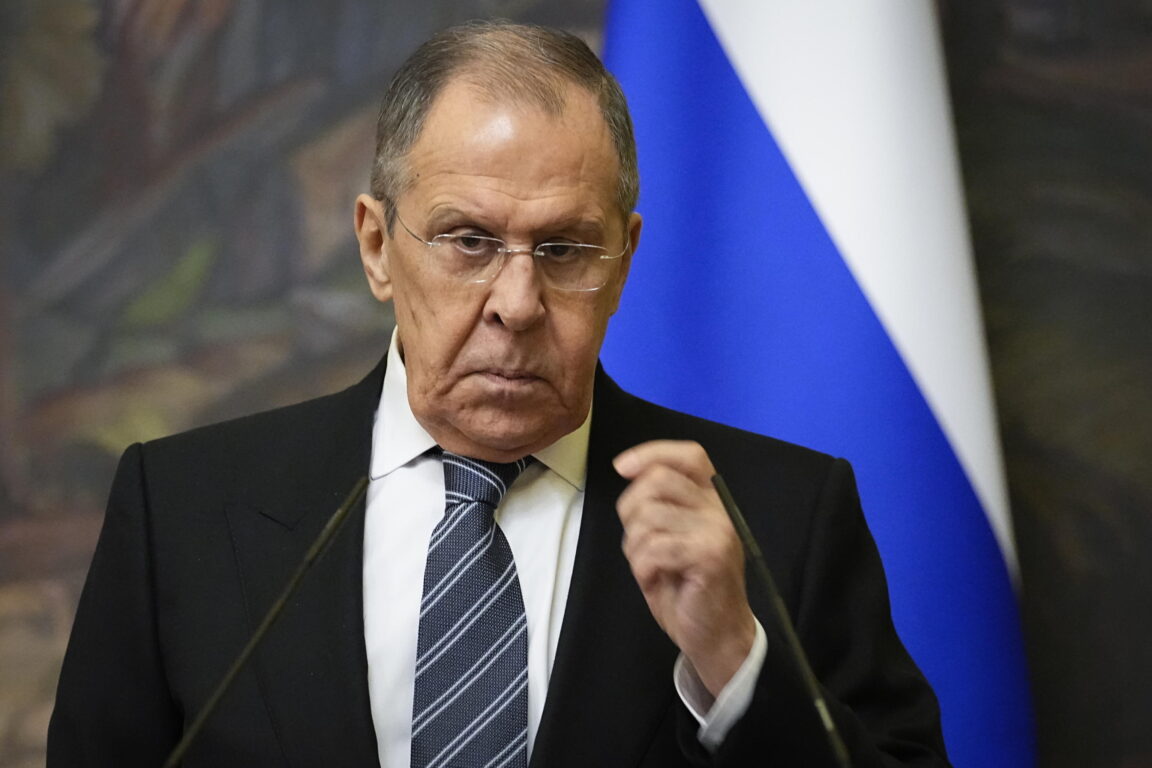The strained relationship between the North Atlantic Treaty Organization (NATO) and Russia has escalated to a new level of tension, as Russian Foreign Minister Sergey Lavrov expressed criticism regarding the potential deployment of F-16 fighter jets in Ukraine.
In an interview with Lenta.ru, Lavrov stated that Russia perceives the transfer of F-16 fighters to Ukraine as a “nuclear threat” due to the aircraft’s capability to carry nuclear weapons.
“We will regard the very fact that the Ukrainian armed forces have such systems as a threat from the West in the nuclear sphere,” Lavrov said on Wednesday.
The minister also informed the nuclear powers, namely the United States, the United Kingdom, and France, that Russia “cannot overlook the fact that these aircraft have the capacity to carry nuclear weapons,” further emphasizing that no assurances would alleviate these concerns.
“In the course of combat operations, the Russian military will not sort out whether each specific aircraft of this type is equipped to deliver nuclear weapons or not,” he added.
Lavrov’s comments were made in response to Ukraine signing a memorandum with 11 partner states during the NATO Summit in Vilnius, Lithuania on July 11.
The coalition, consisting of Denmark, the Netherlands, Belgium, Canada, Luxembourg, Norway, Poland, Portugal, Romania, Sweden, and the UK, agreed to initiate training programs for Ukrainian pilots on F-16 fighters. The memorandum outlines the training conditions and scope, involving Ukrainian pilots, technicians, and support staff. Ukrainian Defense Minister Oleksiy Reznikov has also hinted at the possibility of incorporating other types of fighter aircraft into the training program. Although Ukraine has not yet received any F-16 jets from their Western partners, they have been assured by the US that the provision of these jets remains a priority.
Lavrov criticized the promised delivery of fighter jets by Western countries as an “unacceptable escalation.” He accused the West of attempting to “weaken Russia.”
Russian authorities have repeatedly voiced their opposition to Western nations providing military assistance to Ukraine, arguing that such aid not only exacerbates the conflict but also heightens the risk of a direct confrontation between Russia and NATO powers. Moreover, Moscow has long accused the West of provoking conflicts through NATO expansion and the deployment of weapon systems in close proximity to Russian territories.
Russia has made it clear that any attack on its territory could provoke a nuclear response. President Putin, who governs the world’s largest nuclear power, hinted at the possibility of using nuclear weapons at the beginning of what he calls a “special military operation” in Ukraine, warning that Western interference would result in “unprecedented consequences.” Shortly after announcing the “military operation” in Ukraine, Putin ordered the country’s nuclear deterrence forces to be on high alert, raising concerns about a potential nuclear war. The move drew strong condemnation from the United States, the world’s second-largest nuclear power, where Putin’s order was described as “totally unacceptable.”
Russia possesses the largest stockpile of nuclear weapons in the world, estimated at 6,257 warheads. Moscow retains the right to use nuclear weapons in two scenarios: in response to a nuclear attack or the use of weapons of mass destruction against Russia or its allies, or if the existence of the Russian state is threatened.







 Armenian sappers commenced on Monday mine-clearance operations in the territories adjacent to the Saint Mary Church in village of Voskepar (Armenia...
Armenian sappers commenced on Monday mine-clearance operations in the territories adjacent to the Saint Mary Church in village of Voskepar (Armenia...
 Iran and Pakistan have signed eight cooperation documents in various fields, and agreed to strengthen ties to fight terrorism in the region.
Iran and Pakistan have signed eight cooperation documents in various fields, and agreed to strengthen ties to fight terrorism in the region.
 President Aliyev emphasized the critical role of the North-South Transport Corridor in fostering transport cooperation between Azerbaijan and Russi...
President Aliyev emphasized the critical role of the North-South Transport Corridor in fostering transport cooperation between Azerbaijan and Russi...



